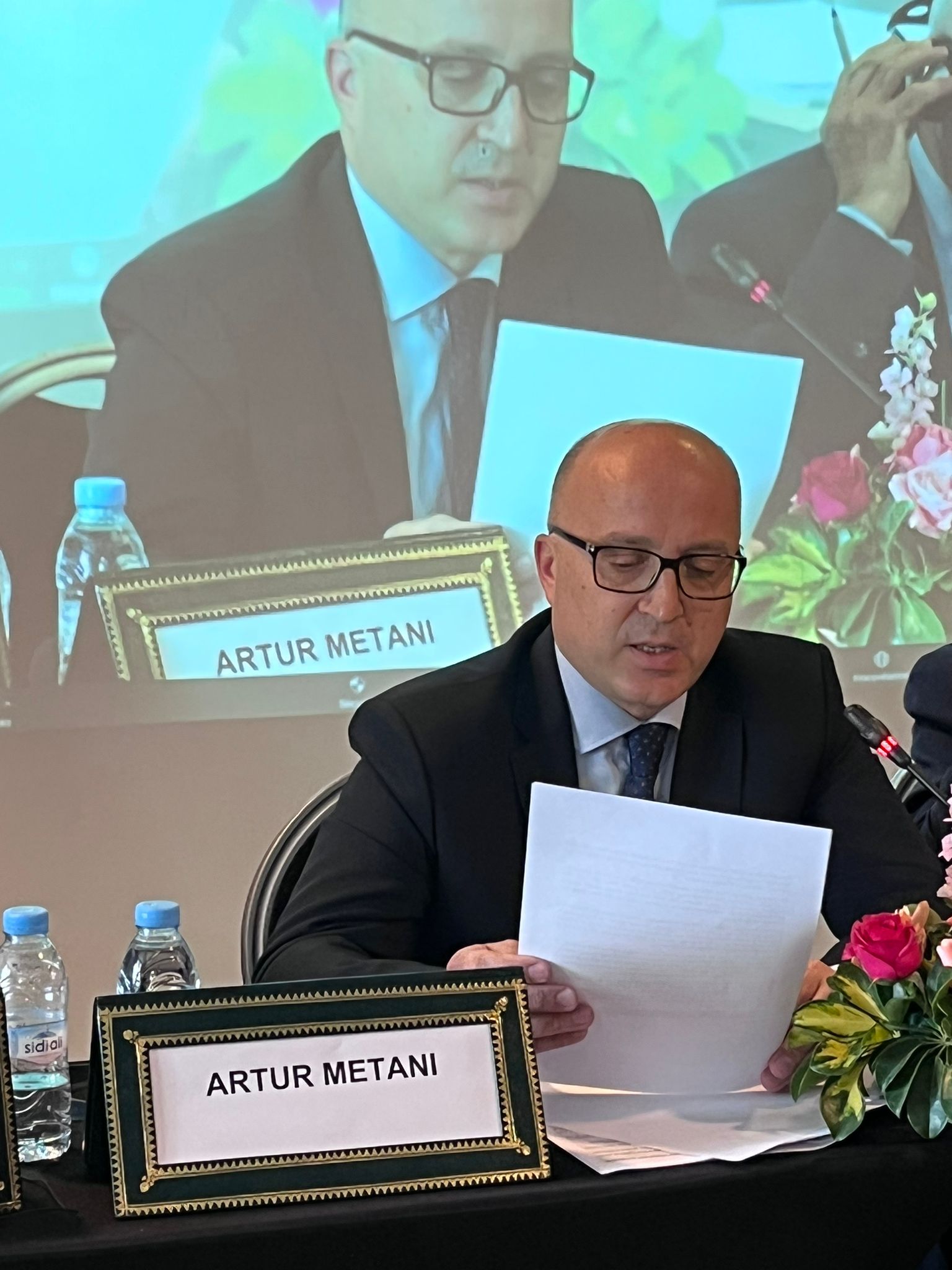Statute and justice inspection missions: A comparative approach
Different forms of organization and interaction with other institutions
Casablanca, Morocco. 11 May 2022
Distinguished heads of Justice Inspection,
Distinguished president of RESIJ and Head of the french Inspectorate Straudo,
Distinguished representatives of Council of Europe and CEPEJ,
Distinguished colleagues and participants,
I would like to thank the organizers of this event for giving me the opportunity to be part of this conference and to share with the participants some of my personal thoughts and considerations regarding the activity of the justice inspection services.
The organization of this activity today provides an excellent platform for exchanging ideas, sharing experiences, as well as analyzing the needs for solutions to our joint challenges, as I personally think that justice system, apart from features and specifics that it can have in different countries, is characterized by the same values, and it operates on the same international standards and principals of organization and operation.
The basic principles applied to the judicial organization are based on the universal principle of judicial independence. An independent and impartial judiciary is the institution with the highest value in any society and constitutes a necessary pillar of freedom and the rule of law. At the same time, in a democratic system, every country must provide a justice system of the highest possible quality and ensure the accountability of the judiciary.
While the exercise of the right to appeal a judicial decision and the control by a higher court is the mechanism traditionally implemented by justice systems to guarantee the control, the quality of a judicial process, or the merits of the law, today this mechanism is complemented by other external forms of control to measure or monitor the quality of justice.
This important mission, regarding the guarantee of these standards is entrusted to our institutions, inspection institutions.
Pursuant to international acts which proclaim international standards and principles of the judiciary organization, inspection services must adapt and apply special control methodologies, and this process must be carried out gradually and based on a set of well-defined criteria, standards and guarantees.
These standards and guarantees are related to: (i) the legal basis which regulates the organization and functioning of inspection institutions: (ii) the forms of their organization and functioning: (iii) the type and manner of exercising control, supervision and evaluation powers: (iv) composition, qualification and professionalization of employees; (v) substantial, structural and financial independence; or (vi) the adoption and application of control or evaluation methodologies which are based on pre-defined standards.
With regard to the legal basis which regulates the organization and functioning of inspection institutions, it is worth noting that taking into account the object of their activity, the rules related to the organization and functioning should be clearly and exhaustively defined in the highest hierarchical legislative acts such as the Constitution or at least in the primary legislation of each country. This serves as a guarantee and stability for their activity.
With regard to the form of organization and functioning, the justice system inspection institutions are organized in different forms; as executive structures at the Ministry of Justice, as structures at quasi-judicial bodies such as the Councils – bodies competent for the administration and governance of the judiciary, or as independent institutions. In this context, it is worth noting that there is no single and only model to apply to all countries equally. However, regardless of their form of organization and functioning, at the core of their activity should be the respect for the separation of powers principle.
With regard to the type and manner of exercising the control, supervision or evaluation power, this can be done in several ways. First by building a system of responsibility and accountability of magistrates in terms of ethical conduct and their judicial activity. However, the disciplinary system must be clear and transparent, with well-defined rules. The accountability system of magistrates should not be misused by other bodies of government in order to control and violate judicial independence. Furthermore, it should be borne in mind when considering the use of disciplinary measures that these should rather be extraordinary measures.
Another important aspect related to the organization and functioning of inspection services is the guarantee of its activity independence and impartiality. The inspection service should be independent of the executive and the legislature and of the body that decides on the imposition of disciplinary sanctions. This should be done through the application of policies or measures aimed at guaranteeing substantial, structural and financial independence of these bodies. On the other hand, in order to ensure credibility and legitimacy, the recruitment or selection of employees should be done on the basis of merit. Some of the employees who are involved in the control and evaluation processes must be magistrates and must be elected by the judiciary. While the rest of the staff must be chosen among individuals with the appropriate legal qualifications.
Dear ladies and gentlemen!
The Council of Europe has gradually developed a set of standards for the efficiency and quality of justice, taking care to respect and protect the independence and impartiality of the judiciary. This has been achieved by defining concrete means to improve the functioning of judicial systems in the member states, as well as by facilitating the implementation of international legal instruments relating to efficiency and justice.
The national legislations of different countries provide different models of organization, functioning, or relations that the inspection bodies of the justice system have with other institutions. Each selected model must be understood as a result of each country historical developments, legal and constitutional tradition, or political and social ones. These factors also dictate the achieved results.
However, the quality of justice is a priority of all countries. Improving the quality of justice is a dynamic and constantly evolving process. Achieving this goal requires an ongoing need to respond to the challenges of identifying new mechanisms to protect them. There are problems which are the same for the European Union countries. Some are the same for all Council of Europe countries and others are specific to each of them.
In this context, we must all cooperate. We all need to analyze and coordinate methods of controlling and evaluating justice institutions. This should be done through periodic meetings; exchange of experiences; unification of best methods and practices in line with the standards of democracy and the rule of law; creation of legal, administrative or practical mechanisms of cooperation; data exchange; or even mutual legal assistance between states.
At the same time, this process should be carried out taking into account the implementation of the European Union standards transposed into national legislation; principles, spirit and jurisprudence of the European Court of Human Rights, the European Court of Justice; acts of the Council of Europe; as well as in applying the methods, instruments and best practices of the European Commission for the Efficiency of Justice (CEPEJ), to increase the quality and efficiency of the judicial system.
In doing so, we will all contribute to the proper functioning of the justice system bodies and to the improvement of the quality of the justice system, achieving in this way, our common goal.
Thank you!

